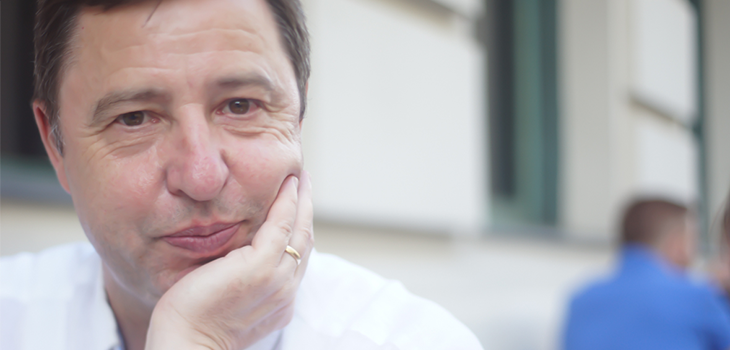CFDE Featured Faculty Member: Peter Höyng

In his eleven years at Emory, Associate Professor of German Studies and Honors Program coordinator Peter Höyng has enriched his work as both a teacher and scholar with resources from the Center for Faculty Development and Excellence. Höyng has participated in CFDE offerings ranging from the Scholarly Writing and Publishing Fund and classroom mini-grants to Meet the Editor and Agent events and a book discussion group. These activities, he says, have advanced his teaching and research in German-language drama, German-Jewish culture, late 18th century German literature, and music and literature.
Höyng credits the Scholarly Writing and Publishing (SWAP) award and the classroom mini-grants with the greatest impact on his work. The SWAP grant enabled him to hire a copyeditor for his book project in progress, on the literary influences on the composer Ludwig van Beethoven. “Having the copywriter is a tremendous help. It really can’t be overstated how important that is. . . . It has really helped me to sharpen [my] larger book project and scholarly writing.”
He used one of the mini-grants he has received to bring in a musicologist from Columbia University to speak to his class. “I had grouped four operas that no musicologist would put together, but they made perfect sense for this class,” he says, “to expose students to 100 years of German drama writing and its links to music and modernism. So when I invited this musicologist, we had an exchange about these operas to highlight these elements, which was very worthwhile for the students to hear.”
Höyng says that one of the aspects he most enjoys about the CFDE’s offerings is that so many of the programs tend to be offered to all university faculty. Because the programs are campus-wide, he says, they “get us out of our silos in which we live in our everyday lives. . . . It’s crucial for Emory to have these sorts of intellectual exchanges.” He points to the recent book discussion group centered around Maggie Berg and Barbara K. Seeber’s book, The Slow Professor: Challenging the Culture of Speed in the Academy, and the collegial exchanges brought about by that and other discussion programs. He adds that he appreciates that the application process for CFDE programs is streamlined and transparent and that information is easily accessible through the CFDE listserv and the ThoughtWork newsletter: “It’s not too cumbersome,” he says. “Not too bureaucratic.”